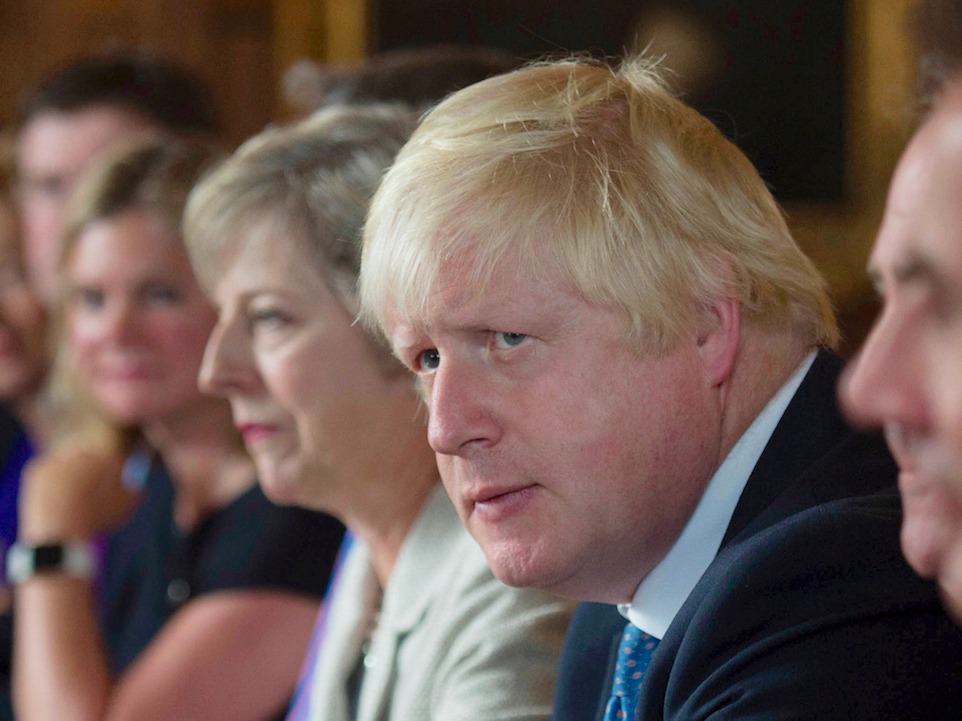LONDON – The prime minister and the foreign secretary dropped massive hints that Britain is unlikely to secure a trade deal with the European Union before Brexit happens.
Prime Minister Theresa May is currently in Jordan, as she and several other cabinet ministers embark on a roadshow to seal trade deals across the globe. She was asked at a press conference if she accepted the EU’s insistence that a final trade deal would only happen after Britain left the 28-nation bloc.
Her response, as reported by the Financial Times, was:
“There’s obviously a legal situation in terms of how the European Union can conduct trade negotiations.”
“I’m clear that by that point at which we leave the EU, it’s right that everybody should know what the future arrangements, the future relationship, that future partnership between us and the EU will be. That’s the sensible thing. It’s a pragmatic way to look at this and I believe that’s what we’ll do.”
She also said “yes,” when asked if this could all be done within two years.
As the Financial Times pointed out, this response “blurred the distinction between an agreement on “the future relationship” and a fully formed trade deal.“
Meanwhile, Britain's Foreign Secretary Boris Johnson said the UK will "more than survive" if it leaves the EU without a deal.
"It is possible to do a deal that is win-win. I don't want to be unduly pessimistic. I think we can get a deal," he said, according to a report in The Telegraph.
But if you ask me 'If we don't get a deal would the UK survive?' I think we would more than survive
"But if you ask me 'If we don't get a deal would the UK survive?' I think we would more than survive."
Prime Minister May is taking Britain towards a "hard Brexit" - the term used to describe Britain leaving the European Union without access to the Single Market in exchange for full control over immigration.
May and her cabinet have said they are looking to seal some form of trade deal with the EU despite plans to bin the Freedom of Movement Act - part of the EU's "four freedoms" - and restrict movements of EU citizens into Britain.
The four freedoms require member states to accept the free, unlimited movement of goods, capital, services, and people. The free movement of people was arguably the biggest concern for voters in the June referendum.
But Britain cannot pick and choose between EU rules and policies it likes and those it doesn't. One of the EU's chief Brexit negotiators, Guy Verhofstadt, has said several times that Britain cannot "cherry-pick" a Brexit deal. Germany's finance minister Wolfgang Schäuble said Britain should "pay the price" for leaving the European Union and added "there is no à la carte menu. There is only the whole menu or none." The list goes on.
A number of experts have said that it is highly improbable that Britain will be able to secure a solid trade deal with the EU, or any other countries, in just two years. Two years is simply not long enough.
A chart of the Brexit talks timetable from the same ING report illustrates this. ING also pointed out that one of the largest and most important trade deals in recent history - the CETA EU-Canada free trade deal - "was seven years in the making, but was almost scuppered by the Wallonia regional government in Belgium."

